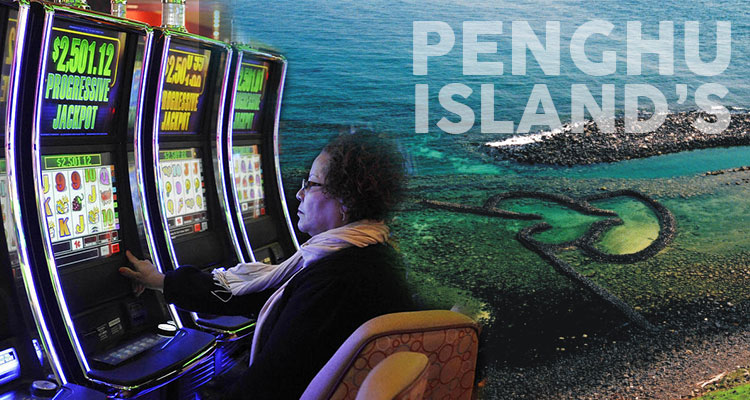As Taiwan seems to be moving every closer to legalizing gambling, at least for tourists, the island county of Penghu is gearing up to become the nation’s premiere location for casinos. Already a popular tourist destination, Penghu is well known for its squid fishing, snorkeling along its beautiful coral reefs and among its awesome basalt columns. Filled with bucolic villages, Penghu has long been a peaceful haven from the bustle of Taiwan’s mainland cities.
Penghu County consists of 90 small islands with a population of only 90,000 permanent residents. The months from October to March bring winter cold and strong winds which bring the tourist industry to a screeching halt. Many people on the islands fear the county is becoming increasing isolated and marginalized due to the “mini-three-links” began.
The “mini-three-links” refers to the direct transport of people and goods between the Fujian province and the outlying islands of Kinmen and Matsu. This program began in January 2001 and Penghu was disappointed when their islands were bypassed in the plan.
“Penghu has always been excluded from the scheme, and its marginalization could be further exacerbated by the launch of direct charter flights between the two sides of the Taiwan Strait July 4,” said Penghu County Magistrate Wang Chien-fa.
For twenty years, officials in Penghu County have been lobbying the central government for the legalization of gambling and casinos. With the latest legislative body, the anti-gambling stance has softened, giving lobbyists new hope for the casino industry in Taiwan. While the Offshore Islands Development Act casino article has already been rejected twice, the margin has decreased to only 27 votes against it in December 2007.
“Lawmakers have long blocked the article because many Taiwanese people consider gambling immoral, but the enormous successes of the casino industry in other Asian countries made for a powerful argument,” said an aide to Lin Pin-kuan, a fourth-term independent legislator from Penghu County. “Taiwan has legalized lotteries. People should be able to discuss casinos more reasonably now,” he added.
Lin sent his draft of the casino article to the Legislature for approval in each of his four terms. During a legislative Economics Committee review of the development act at the end of May, he called on Minister Chen Tain-jy of the Council for Economic Planning and Development to deliver on President Ma Ying-jeou’s campaign promise to pass the casino article as soon as possible.
Chen declined to give a definite timetable for the passage of the law, noting that the CEPD needed to study the issue from the perspectives of national economic development and land-use planning. The council intends to send its version of the casino article to the Legislature for discussion in December.
The article’s delayed passage may have already lost the island county a potentially huge foreign investment. Las Vegas Sands Corp has been interested in Penghu as a possible casino complex location since 2000. Now that the Sands has won a license to build Singapore’s first casino, the county officials worry that they have lost interest in Penghu.
“Las Vegas Sands was the first foreign group to come to inspect Penghu. The corporation visited the islands even before it went to Macau,” said Hung Tung-lin, director of the Penghu County Government’s Tourism Bureau.
“However, because Taiwan had not passed the casino article in 2000, the group turned its attention to Macau and Singapore. There is really not another minute to lose. The industry could have generated more than 20,000 job opportunities in Penghu,” Hung emphasized.



